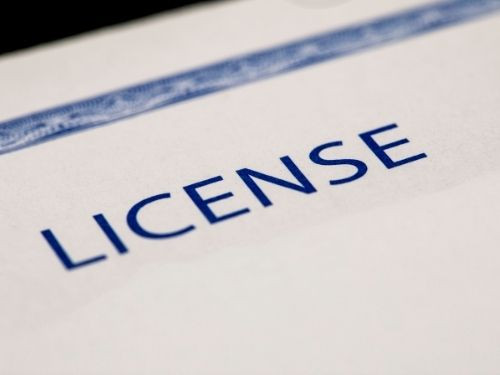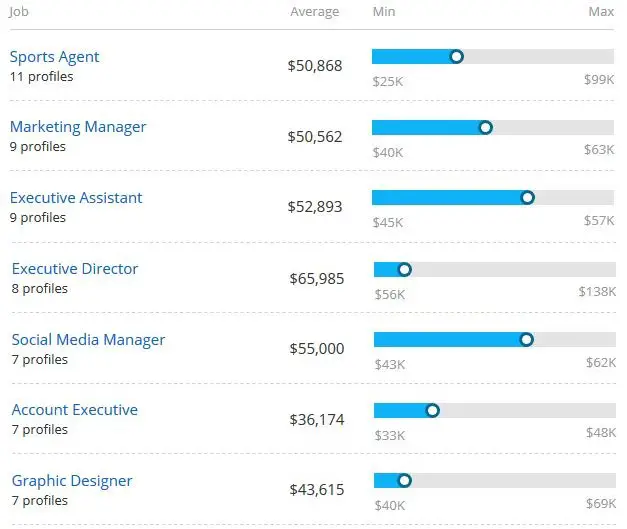How to Become a Sports Agent
Have you always wanted to work in the athletic industry? Learn how with this guide on how to become a sports agent!
The $70 billion American sports industry has lots of room for opportunities and advancement. The best part? You don’t need to train like an athlete to have a successful career in sports. Many careers exist in the sports realm, especially in the business side of things. For every athlete, there’s a coach, trainer, physical therapist, publicist, and of course, sports agent.
Sports agents are a vital part of the industry, as they represent the athletes performing in major games. Wondering what sports agents do, and how to become a sports agent? Read on. Sports agents negotiate pay and contracts for work and endorsements, work with marketing and publicists, and help the athlete find a team that aligns with their desired career goals and values.
Sometimes sports agents work independently for one or a select few athletes. Other sports agents work within agencies, hired by national and international teams to procure talent.
In this guide, we’ll cover everything you need to know about how to be a sports agent, including sports agent salary, sports agent schooling, and sports agent requirements.
Becoming a Sports Agent: Sports Agent Schooling
While there isn’t a set schooling requirement to become a sports agent, most sports agents have completed some schooling. Specifically, most sports agents have a bachelor’s degree at the minimum, while the highest-earning agents hold master’s degrees and even P.h.D or law degrees.
Here’s a breakdown of the average sports agent’s career path
- Earn a bachelor's degree in sports management or a related field
- Gain law and contract experience, either through a law degree, paralegal training, or working as an intern at a law office
- Gain experience, likely as a sports management intern to start
- Get licensed, as required by some states
- Apply for sports agent jobs
- Consider graduate degrees
- Advance your career
|
Career Title |
Sports Agent |
|
Degree Requirements |
No specific requirement, but many have a Bachelor’s of Sports Management or related field |
|
Job Growth |
10% |
|
Experience required |
5 years |
|
Median Salary (2021) |
75,420 |
|
How long to become a Sports Agent |
6 years |
|
Required Skills |
Communication and negotiation skills, sales skills, professional attitude, contract law knowledge |
What does a Sports Agent do ?
Sports agents are responsible for managing athletes’ careers. They represent their athlete clients and help them reach financially rewarding agreements in their contracts and through endorsements. Other duties include:
- Scouting for new and talented athletes and players at sports matches and events
- Finding opportunities with organizations for athletes and players
- Managing client’s marketing and endorsement activities
- Representing clients if there’s a dispute with the organization that employs them
- Acting as a media spokesperson for the client
- Handling contract and salary packages
- Supporting clients during times of personal difficulty, loss of form, or when they're under pressure
How Long Does it Take to Become a Sports Agent?
Generally, you’ll need at least 6 years to become a sports agent.
Click here to view our full article on how long it takes to become a sports agent.
Sports Agent Salary
The latest reported median sports agent salary is 75,420. The top 10% of agents make more than double, at an average of $190,500. On the lower end, sports agents with minimal experience or education make closer to $35,000-$53,000. To make the big bucks, you’ll need extensive experience and education, and will likely need a master’s degree.
Steps for becoming a Sports Agent
1
Earn A Bachelor’s Degree
Most sports agents need to have at least a bachelor’s degree. Aspiring sports agents can pursue degrees in sports management, the unofficial sports agents degree. A bachelor’s of sports management covers topics like administrative philosophy, licensing, negotiation, history of the sports industry, accounting, information systems, and more. For more specifics on coursework, check out our article on appropriate majors for sports agents.
Other suitable fields of study for aspiring sport agents include business administration, business management, or marketing.

2
Learn About Law And Contracts
Much of your job as a sports agent will be to help your client, often a young athlete, make sense of contracts for their work. Since so many athletes start their careers at a young age, they might not have the necessary experience to make informed decisions about contracts on their own. That’s why aspiring sports agents need some knowledge about contracts.
Many sports agents obtain law degrees to have superior contract knowledge. Others simply take courses in university, work in law offices, or gain paralegal training.
3
Gain Experience
After graduating from an undergraduate program, aspiring sports agents must gain experience. You can often find internship programs and entry-level jobs with sports agencies. You might also consider working in sales to help develop your negotiation and communication skills, though direct sports experience is superior to general sales. After gaining a couple of years of experience, you will have better success in applying for sports agent positions.

4
Become Registered Or Licensed
Some states like California and Maryland require sports agents to have a license and be fully registered. For example, basketball agents must be NCAA-certified. Due to there being no formal or regulatory governing boards, requirements can vary from state to state. Typically, potential agents may only need to agree to a background check along with a registration application. Of course, they will also need to pay for any required registration and licensing fees associated with these courses.

5
Apply For Sports Agent Jobs
Now that you have a bachelor’s degree, knowledge of contracts, and internship or entry-level experience, it’s time to apply to some better sports agent jobs. You can find work through industry associations, network contacts from your school or work experience, as well as sports-specific job boards.
6
Consider Graduate Education
Agents may want to consider master’s degrees that provide actual training in sports management, such as an M.B.A. degree. Other specializations for master’s and doctorate degrees include:
- Risk management
- Sports medicine
- Sports marketing
- Organizational Management
- Public Relations
- Business Law
- Sociology

Sports Agent Degree Levels
Associate
An associate degree in sports management help students develops a deeper understanding of industry and business principles. Students also study practical and theoretical aspects of fitness and athletics through team building exercises. Coursework in a sports management associate's degree program includes fundamental computer skills, product promotion, advertising, public relations and business law.
Physical education leadership
-
Self-Evaluation and Personal Philosophy
-
Skills, Qualities, and Techniques of Leadership
-
Best Practices for PE Leadership
Objectives
-
Exhibit leadership traits in large and small group settings
-
Engage in service opportunities
-
Implement initiatives and problem-solving tactics
Introduction to sports management
-
Professional Sport
-
Sport Marketing
-
Event Management
Objectives
-
Applying management skills to events and organizations
-
Explaining key components of sports management
-
Demonstrating a strong knowledge foundation of the sport industry
Introduction to business
-
Business Environment
-
Effective Communication
-
Developing a Business Mindset
Objectives
-
Develop a basic understanding of the free enterprise system
-
Understand how business ethics apply to customers and other stakeholders
-
Understand the basic forms of business ownership
Bachelors
A bachelor’s degree is a crucial step to prepare for a successful career in sports management. Aspiring sports managers have many different options in developing a sports management degree plan. Choices for a bachelor’s degree in this field include specialties in Sports Management, Marketing, Business Administration and Accounting as well as areas such as risk management or fitness and wellness.
Marketing
-
Marketing Mix
-
SWOT Analysis
-
Target Market & Segmentation
Objectives
-
Understanding the importance of strategic marketing
-
Analyze the external environment to identify opportunities or challenges
-
Identify and classify marketing segments and targets
Business Administration
-
Principles of Management
-
Business mathematics and statistics
-
Business Economics
Objectives
-
Provide a basic understanding of management
-
Effective communication skills
-
Entrepreneurship skills
Business law
-
The legal system and the legal environment of business
-
Contract law
-
Investigate commercial paper and negotiable instruments
Objectives
-
Describe the U.S. legal system and the legal environment of business
-
Describe the relationship between ethics and law in business
-
Define relevant legal terms in business
Masters
Coursework at the master’s level will prepare a student for management and administrative roles within the sports management and sports medicine fields. Generally, students can pursue an MBA or a Master of Science.
Management for Organizations
-
The Dynamics of People and Organizations
-
Models of Organizational Behavior
-
Organizational Culture
Objectives
-
Introduction to management theory and practice
-
Planning, organizing, leading and controlling
-
Technology-driven and global organizations
Public Relations Practice & Promotional Writing
-
Research/Gathering Information
-
The ART of the PITCH
-
Social Media PR, e-Releases
Objectives
-
An introduction to current procedures and duties of public relations
-
Write news releases
-
Brochures, speeches, reports, memos, and scripts
Sociology of Sport
-
Different levels of sport
-
Sports in relation to social stratification
-
Race, gender and social discrimination
Objectives
-
Historical contexts which created and shaped the growth of the sport
-
Understand the political and economic forces shape sporting experiences
-
Improve one’s ability to articulate complex arguments
Doctorate
A Ph.D. in sports management generally originates in education or sports administration but Ph.D. candidates may also focus their research in areas like interscholastic athletics, sports marketing, sports leadership, sports medicine, risk management or the psychological and sociological aspects of sports.
Sports Marketing
-
Introduction and Marketing Through Sports
-
Marketing of Sports
-
Emerging Issues in Sports Marketing
Objectives
-
The marketing tools for sports marketing
-
The perspectives of participants and spectators as sports consumers
-
The marketing mix options for sports products
Sport Medicine
-
Athletic Training as a Career
-
Prevention of injury
-
Injury Healing
Objectives
-
An insight into the field of sports medicine
-
An overview in the areas of prevention, treatment, and rehabilitation of athletic injuries
-
To instruct students in basic first aid and emergency care
Risk Management
-
Insurance and Risk
-
Introduction to Risk Management
-
Types of Insurers & Marketing Systems
Objectives
-
Engage students in active discovery of risk management principles
-
Challenges, tools, and process of implementing risk management program
-
Ways in which businesses and society assess, control, and transfer risk
